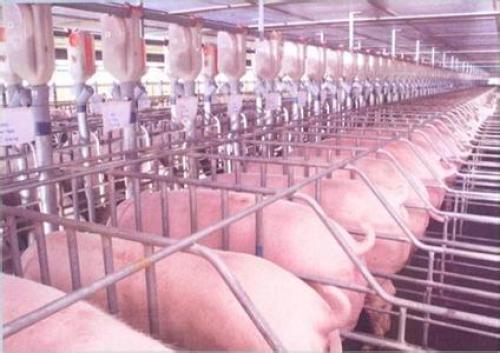
In some areas of China, the livestock and poultry breeding industry has surpassed residents' lives and township industries, and has become a major source of agricultural and rural environmental pollution.
Yesterday, Premier Li Keqiang chaired a regular meeting of the State Council to review and approve the Regulations on the Prevention and Control of the Pollution of Livestock and Poultry Scale (Draft) (hereinafter referred to as the "Draft").
The meeting pointed out that the use of legal means to promote aquaculture pollution prevention and control is of great significance in promoting the transformation and upgrading of livestock husbandry, the effective prevention of public health events such as bird flu, and ensuring the health of people.
The meeting called for strengthening incentive measures, encouraging large-scale and standardized aquaculture, coordinating aquaculture production layout and rural environmental protection, strictly implementing farmers' responsibility for pollution prevention and control, and supporting the comprehensive utilization and harmless treatment of aquaculture waste, so that livestock and poultry farming pollution Improve and protect the ecological environment and promote the sustained and healthy development of animal husbandry.
According to the results of the first national survey on pollution sources, agricultural pollution has become the main destroyer of the water environment, and the most prominent one is the pollution of livestock and poultry breeding.
The "Proposal No. 1" of the two sessions this year also focused on the development of green agriculture. In the face of the fact that China's mode of agricultural development is extensive, energy utilization is low, and pollution is becoming increasingly serious, members of the CPPCC National Committee propose that we should develop green agriculture to solve China's food safety problems.
In addition to considering environmental issues, the ever-increasing demand for meat, eggs, and milk production in the consumer market places demands on the transformation of livestock and poultry husbandry.
The National Twelfth Five-Year Plan for Animal Husbandry Development (2011-2015) promulgated by the Ministry of Agriculture shows that in 2011, nearly 40% of live pigs were provided by retail households with an annual slaughter of less than 50, and 60% of dairy cows were on hand. Small households under the head.
The free-range production methods are not only difficult to control the quality of livestock products, but also make our country face more severe prevention and control of major animal diseases.
In order to help the aquaculture industry develop toward scale, in recent years, the state and local governments have successively introduced a series of support measures, creating a total of 3,178 national-level standardized demonstration sites and nearly 10,000 provincial-level demonstration sites. The Ministry of Agriculture also put forward the requirements of “standardization of scales for livestock and poultry, cultivation of breeding facilities, standardization of production, institutionalization of epidemic prevention, and harmlessness of manure.â€
Chen Fang, an agricultural analyst with Zhongyan Futures, told the “First Financial Daily†that according to the incident of Jiaxing dead pigs, large-scale farming can suppress random littering of dead pigs to some extent. However, this also imposes requirements on the ability of local dead animals to deal with innocuous treatments, and it needs to continuously adapt to the development level of large-scale breeding.
In order to effectively prevent and control major animal epidemics and ensure the quality and safety of animal products, the Ministry of Agriculture has begun to explore the establishment of a long-acting mechanism for the safe disposal of dead and sick pigs.
On September 30, the Ministry of Agriculture formulated the “Pilot Program for Establishing a Long-acting Mechanism for the Harmless Treatment of Diseased and Dead Pigsâ€. According to the principle of “government-led, market operation, overall planning, adjustment according to local conditions, financial subsidies, and insurance linkageâ€, the sick and dead pigs are harmless. The long-term mechanism for the treatment of pilot work.
Mushrooms & Truffles,Mushrooms And Truffle,Mushrooms & Truffle,Mushrooms And Truffles
ZHONGSHAN G.H.L. TRADING CO., LTD. , https://www.ghltrade.com